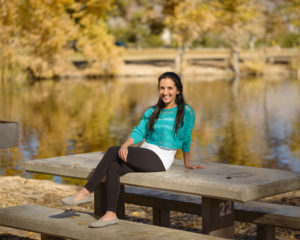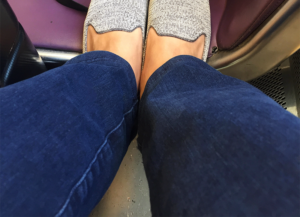 Angelisa is a college senior with $30,000 in student loans. She has a part-time job, from which she’s saved $2,500. Should she keep saving money, or should she get a headstart on paying down her student loans while she’s in school?
Angelisa is a college senior with $30,000 in student loans. She has a part-time job, from which she’s saved $2,500. Should she keep saving money, or should she get a headstart on paying down her student loans while she’s in school?
Mackenzie is also a college senior with some student loans. She recently received a settlement from a car accident. Should she invest this money? If so, how?
Franchesca is 35 and is carrying $212,000 in debt, mostly student loans. Could she reach financial independence, even with a late start?
Erica wants to make environmentally-friendly investments. How should she approach this?
Caroline is 42 and has started making after-tax (non-Roth) 401k contributions. Is this a good idea?
An anonymous listener is curious about podcasting. How did I get started?
I answer these six questions on today’s podcast episode, alongside former financial planner Joe Saul-Sehy. Enjoy!
Angelisa asks:
I’m 21 years old and graduating from college in May 2019. Upon graduating, I’ll have $30,000 in federal unsubsidized student loans. The interest rate is about 5 percent.
I work part-time and I’ve been saving a couple hundred dollars every month, so I have emergency savings of about $2,500. As I prepare for graduation, should I continue putting the money I’m making from my part-time job into savings? Or should I get a head start on paying down my student loans, so that by the time I graduate, they won’t be as high or as scary?
Mackenzie asks:
I’m a senior in college. I’ve been able to cash flow most of my expenses, but I had to take out student loans this year. I was in a car accident about 4 years ago and recently settled. I plan to use the settlement money to pay back my loan and finish paying my tuition.
I’d like to start investing and I’ve listened to your podcast religiously, but I still get confused on where to start. Do I go through a financial advisor, or do you suggest that I do it on my own? If I take a DIY approach, what account do I open? Should I throw all of my settlement in at once, or do I do monthly payments to hit the market at different points?
Erica asks:
Given the dire warnings in the new U.N. climate change report, I want to ensure that my investments go toward promoting a sustainable world. My Roth IRA and 401(k) are in two ESG funds with Calvert and Trillium that screen for good corporate practices, although the fees are fairly high. I also see that Vanguard has an ESG index fund, but I’m not sold on the holdings in its portfolio.
What advice would you give to investors wanting to address climate change, either through mutual funds or otherwise?
Franchesca asks:
I turned 35 last month. I started learning about getting debt free through Dave Ramsey and then came across your podcast.
Is it possible to gain financial independence and invest in real estate if I start now? I have $212,000 in debt, which is a combination of consumer debt and student loans. (The majority of it is student loans). Have people accomplished this? I want to have some hope since I’m not starting in my 20s!
Caroline asks:
I’m 42 years old. I max out my 401(k) contributions on a pre-tax basis around September or October of every year. I don’t know where to invest that amount for the remaining months of the year. I like my 401(k) investments; it’s in low-fee index funds.
I recently found out that you can contribute up to $55,000 per year to a 401(k). So after understanding the tax treatment of the after-tax contributions (not the Roth, just the after-tax), I temporarily increased my contributions in the after-tax basis.
But in a prior podcast, I heard from Joe that we should stay away from this type of contribution. Why? What’s so bad about it?
Anonymous asks:
I’ve been listening to your podcast for about a year, and I think it’s amazing. I’d love to hear more about podcasting in general: the nuts and bolts, and what you’ve learned along the way.
Resources Mentioned:
Thanks to our sponsors!
Radius Bank
Do you want your money to make more money? Then check out Radius Bank’s free high-interest checking account. You earn 1.00% APY on balances of $2,500 and up. There are no monthly fees, free ATM’s worldwide, and they’ll rebate ATM fees charged by other banks! To get started, head over to radiusbank.com/paula.
Freshbooks
Save time by using Freshbooks, an easy-to-use, cloud-based accounting system that takes the stress and hassle out of bookkeeping and, especially, invoicing. You can create an invoice in a few seconds, and Freshbooks’ automated system will handle the rest. Visit Freshbooks.com/paula for a free 30-day trial. Please mention this show when they ask how you heard about them.
Robinhood
Robinhood is an investing app that lets you buy and sell stocks and ETFs commission-free. They strive to make financial services work for everyone – not just the wealthy. I’ve been using Robinhood since March 2015! If you want a free stock, just sign up at afford.robinhood.com.

I’m wearing my Betabrand pants on a flight – they’re that comfortable!
Betabrand
Most of us find ourselves in situations where we need to wear dress pants, whether it be for work, a conference, or a meeting. If only you could wear yoga pants to everything, right? Well…now you can! Betabrand actually offers dress pant yoga pants, and they’re as awesome as they sound. Check them out and get 20% off one pair by entering “paula” at checkout.